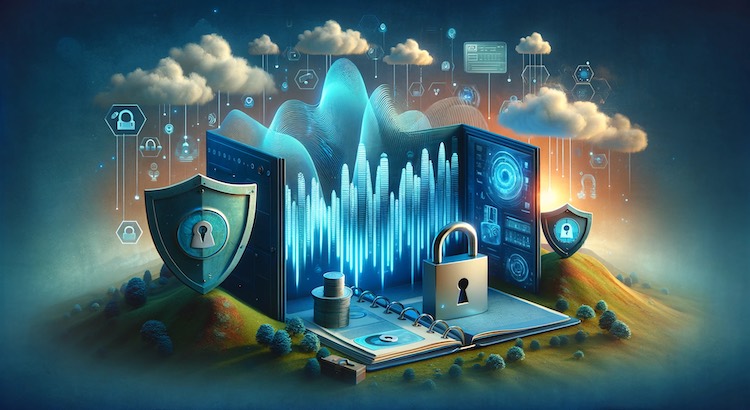How Non-Profits Can Protect Sensitive Information in Audio Transcription
Non-profit organizations increasingly depend on audio and video recordings for meetings, interviews, and community engagement. These recordings often hold sensitive or confidential information about donors, volunteers, or the people they help. When converting these recordings into text, protecting privacy becomes crucial.
Why Transcription Services Matter for Non-Profits
Audio transcription services help non-profits by turning spoken words into text for review, record-keeping, or accessibility. Clear, accurate transcripts are essential for transparency and expanding access for people who are deaf or hard of hearing.
- 84% of businesses use video or audio recordings in their workplace (Wyzowl, 2023).
- More than 25% of non-profit communications contain sensitive data (TechSoup, 2022).
- Accessible transcripts boost engagement and trust among stakeholders.
Choosing a service that focuses on privacy in transcription helps non-profits ensure their data stays secure.
The Risks of Poor Data Protection in Transcription
If non-profits do not protect their audio files and transcripts, private information can leak. This could harm the people the non-profit serves or lead to legal troubles.
- Hackers can target non-profit organizations, as 43% of them experienced data breaches in the past 2 years (Nonprofit Tech for Good, 2023).
- Lost or leaked files damage trust with donors and partners.
- Failure to follow privacy laws can bring large fines.
Best Practices for Protecting Sensitive Info During Transcription
Non-profits must use strong rules and practices to keep information safe in every step of the audio transcription process. Here’s how:
1. Choose a Trusted Transcription Partner
- Pick a provider known for following privacy laws and using secure technology.
- GoTranscript uses strict confidentiality agreements and trained humans to ensure accuracy and security.
2. Sign Non-Disclosure Agreements (NDAs)
- Have the transcription company sign an NDA before you share any files.
- NDAs make sure no information is shared with the wrong people.
3. Use Secure File Transfers with Strong Encryption
- Choose a service with encrypted file transfer and storage, so hackers cannot access your audio or text (Cybersecurity & Infrastructure Security Agency, 2023).
4. Limit Access to Sensitive Transcripts
- Give access to transcript files only to people who need them for their work.
- Use password protection and access logs to track who sees what.
5. Ask for Regular Security Audits
- Work with companies that regularly check and update their security practices.
- Annual audits find gaps and help prevent new threats.
6. Anonymize Where Possible
- Remove or hide names, phone numbers, and addresses that do not need to be in the final transcript.
- This protects the privacy of everyone involved.
7. Create a Feedback Loop
- Ask your transcription service for a way to report concerns or suggest changes in security practices.
GoTranscript: Protecting Non-Profit Data with Human Expertise
Automated tools can help save time, but they might miss details or misunderstand context, which is risky when sensitive info is involved. Services like automated transcription offer quick results, but non-profits often need the accuracy and discretion that comes from real people.
- Human transcribers deliver up to 99% accuracy, compared to 85-88% for AI-only tools (Sonix, 2023).
- AI transcription subscriptions may work for non-confidential data, but sensitive topics need careful review.
- Transcription proofreading services add an extra layer of accuracy and protection before final delivery.
Other Ways to Support Accessibility and Security
Beyond transcription, non-profits can make their content even more accessible and safe. Adding captions and subtitles to videos is a key step.
- Closed caption services ensure everyone can understand your video.
- Subtitling services help break language barriers for global audiences.
- Text translation services and audio translation services keep messages accurate and confidential when dealing with multiple languages.
Managing Costs and Ordering Transcription Securely
Non-profits operate on tight budgets. It is important to know how much transcription costs and whether privacy steps will fit the budget. The same care must be taken with captioning pricing or other services.
- Always use official portals to order transcription or order captions to guarantee secure uploads.
Conclusion: Trust and Security for Non-Profit Transcription
Protecting sensitive information is a core duty for non-profits, not only for safety but also to keep the trust of those they serve. By following clear security practices—choosing a trusted partner, using NDAs and encryption, limiting file access, and regular audits—non-profits can focus on their mission with peace of mind.
GoTranscript offers a complete suite of solutions for secure, high-quality human transcription and accessibility, ensuring privacy and accuracy at every step. Choose a partner committed to your values and your stakeholders’ safety.



















 Verified Order
Verified Order